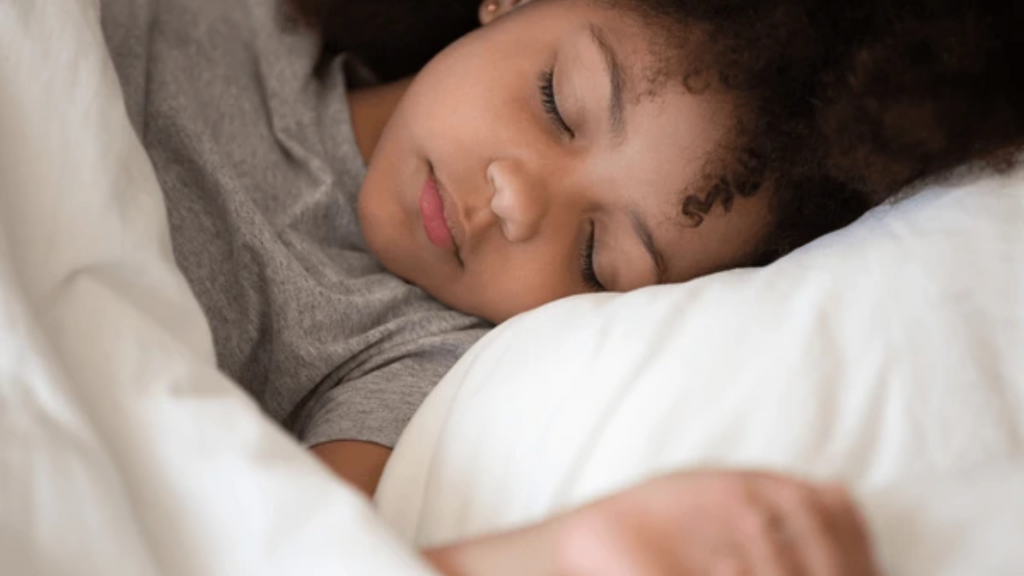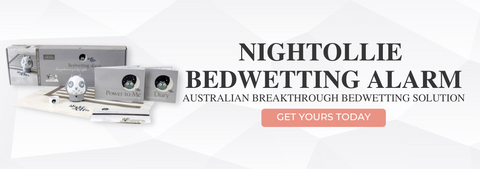How a Bedwetting Alarm Can Help Deep Sleepers Overcome Nighttime Wetting

Bedwetting is a unique challenge faced by deep sleepers. It becomes difficult for them to wake up to their body signals when they need to go to the bathroom.
Medications and absorbent garments may temporarily resolve the concern; however, they fail to address the underlying problems.
This is where bedwetting alarm technology is needed.
But how does the system work? And is it effective? In this article, let’s share the science behind bedwetting alarms and how they can solve the problem of these deep sleepers.
Who are Deep Sleepers?
Deep sleepers experience prolonged periods of deep sleep caused by slow brain wave activity. They often have difficulty waking up easily or responding to external stimuli during sleep, such as noises or movements.
Due to this, they may not wake up to their body signals, such as a full bladder, contributing to challenges like bedwetting (nocturnal enuresis) or difficulty waking up on time in the morning. Deep sleepers need stronger triggers compared to lighter sleepers.
The Impact of Bedwetting on Deep Sleepers
Bedwetting can significantly impact deep sleepers' quality of sleep and life as a whole. It can lead to embarrassment, low self-esteem, and anxiety. They tend to avoid sleepovers, overnight trips, and other social activities out of fear of wetting the bed.
Likewise, changing sheets and cleaning up after accidents can be time-consuming. Thus, it's truly essential to stop bedwetting in deep sleepers to improve their overall well-being and ensure they get the restful sleep they need.
How do Bedwetting Alarms Work?
Alarms help deep sleepers overcome nighttime wetting by providing an effective way to wake up when they need to use the bathroom. The alarm is definitely different from the usual alarm clock at our homes.
These bedwetting alarm systems include a mat (integrated with a sensor) and a receiver. When the sensor detects moisture, it triggers an audible alarm, waking the deep sleeper. The main goal of this system is to stop bedwetting by training their brain and bladder to recognise the sensation of a full bladder and respond by waking up to use the bathroom.
Alarms help deep sleepers overcome nighttime wetting by providing an effective way to wake up when they need to use the bathroom. The alarm is definitely different from the usual alarm clock at our homes.
These alarms include a mat (integrated with a sensor) and a receiver. When the sensor detects moisture, it triggers an audible alarm, waking the deep sleeper. The main goal of this system is to stop bedwetting by training their brain and bladder to recognise the sensation of a full bladder and respond by waking up to use the bathroom.
Benefits of Using a Bedwetting Alarm for Deep Sleepers
A bedwetting alarm offers numerous benefits for deep sleepers struggling with nighttime wetting.
1. It helps them regain control over their bladder and reduce the frequency of accidents. By consistently using it, deep sleepers can retrain their brain and bladder to respond to the need to urinate, leading to fewer wet nights.
2. Bedwetting alarms empower deep sleepers by giving them a proactive solution to overcome bedwetting. Instead of feeling helpless, they can take charge of their condition and work towards achieving dry nights.
3. Using a bedwetting alarm can improve deep sleepers' self-esteem and overall well-being. They can enjoy better sleep and wake up refreshed by eliminating the embarrassment and stress associated with the condition.
Choosing the Right Bedwetting Alarm for Deep Sleepers
There are several factors to consider when choosing a bedwetting alarm for deep sleepers.
1. Look for bedwetting alarms with highly sensitive detection methods that detect moisture quickly and accurately. Deep sleepers may not wake easily to subtle cues, so alarms with rapid response times are essential.
2. Opt for alarms with loud alert systems. Deep sleepers may require louder alarms or different alerts, such as vibrations or flashing lights, to wake them effectively.
3. Select a bedwetting alarm that is user-friendly and easy to set up. Deep sleepers may be groggy upon waking, so a simple and intuitive design can help streamline the alarm's use, reducing frustration and ensuring consistent usage.
4. Consider additional features or functionalities that may enhance the user experience. Some bedwetting alarms offer extras such as wireless connectivity, progress tracking, or integrated bedwetting alarms in bedding, which may benefit deep sleepers.
5. Check reviews and seek recommendations from other users, especially those with similar sleep patterns or bedwetting challenges. Real-world feedback can provide valuable insights into the effectiveness and suitability of different bedwetting alarms for deep sleepers.
Putting It All Together
Bedwetting can be challenging and frustrating for deep sleepers, but it doesn't have to define their sleep experience. With the help of a bedwetting alarm, deep sleepers can break free from the cycle of nighttime wetting and reclaim their sleep.
These innovative devices offer a proactive and effective solution to overcome bedwetting by retraining the brain and bladder to respond to the need to urinate. By consistently using a bedwetting alarm, deep sleepers can achieve dry nights, boost their self-esteem, and enjoy restful sleep.
With the right support and strategies, deep sleepers can confidently navigate their sleep journey and wake up to a dry and bright morning.





